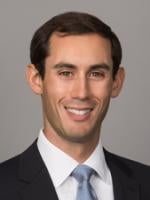Combating health care fraud will continue to be a priority for the Jeff Sessions-led Department of Justice (DOJ).
DOJ Criminal Division’s Acting Assistant Attorney General Kenneth Blanco, in a May 18 speech at the ABA’s Institute on Health Care Fraud, said that Attorney General Jeff Sessions “feels very strongly” that “health care fraud is a priority for the Department of Justice.” Mr. Blanco called health care fraud “despicable” and said, “the investigation and prosecution of health care fraud will continue; the department will be vigorous in its pursuit of those who violate the law in this area.” Mr. Blanco continued, “I can tell you that [Attorney General Sessions] has expressed this to me personally.”
Mr. Blanco sent a strong and clear message to the audience of health care attorneys, defense counsel, compliance professionals, and relators counsel that the Justice Department’s longstanding commitment to combating health care fraud will continue. His speech appeared to be designed to address concerns that changes in emphasis in the DOJ Criminal Division towards immigration and violent crime would come at the expense of health care fraud investigations. Attorney General Sessions is committed to investigating and prosecuting health care fraud because, Mr. Blanco said, health care fraud hurts vulnerable people seeking medical care and costs the government and tax payers almost $100 billion annually.
Mr. Blanco cited three tools that the Justice Department has used for the past several years when discussing the Department’s full-court press to prosecute corporations and individuals who orchestrate and benefit from fraudulent health care schemes: (1) recent work of the Health Care Fraud Unit, a specialized unit within the Criminal Division’s Fraud Section, (2) the importance of cooperation between the Medicare Fraud Strike Forces, U.S. Attorney’s Offices, and state and federal investigative agencies, and (3) the commitment to the use of in-house, real-time data analytics to review CMS data to detect fraudulent billing and emerging fraudulent schemes. By emphasizing the DOJ’s commitment to combating health care fraud, Mr. Blanco dispelled speculation that the Department might divert resources from this fight, even as Attorney General Sessions prepares to re-order the DOJ’s prosecutorial initiatives.
To illustrate this point, Mr. Blanco highlighted recent enforcement actions by the DOJ’s Health Care Fraud Unit against a number of companies and individuals:
-
As part of the DOJ’s prosecution against one defendant, Philip Esformes, in July 2016 the DOJ charged him and two other individuals from Miami who allegedly submitted $1 billion in fraudulent claims to Medicare and Medicaid. The individuals charged were: (1) Philip Esformes, the owner of nursing and assisted living facilities, (2) a hospital administrator who allegedly facilitated kickbacks and bribes, and (3) a physician’s assistant who allegedly received kickbacks for unnecessary referrals.
-
The July 2016 prosecution follows an earlier 2006 settlement in which Esformes and a group of businessmen who owned a Miami area hospital paid $15.4 million to resolve federal and Florida civil health care fraud claims for nearly identical conduct.
-
-
In October 2016, Tenet Healthcare Corporation, a national hospital chain, paid over $513 million to resolve criminal and civil charges relating to a bribery scheme. To resolve the matter, Tenet pled guilty to paying millions in bribes to pre-natal care clinics in return for Medicaid patient referrals. Two individuals also pled guilty for their participation in the scheme.
-
Meanwhile, John Holland, a senior vice president for Tenet, was also charged with health care fraud. The indictment alleges that Mr. Holland coordinated the payment of bribes and kickbacks in exchange for patient referrals to Tenet hospitals. The case against Holland is pending.
-
-
Medicare Fraud Strike Forces are also investigating criminal conduct within the health care context. In April 2017, the Detroit area Medicare Fraud Strike Force and the U.S. Attorney’s Office for the Eastern District of Michigan worked together to indict three individuals – two Detroit-area doctors and their co-conspirator – for a scheme to perform female genital mutilation on minors, which is prohibited by federal law.
Mr. Blanco’s speech reiterates that under Attorney General Sessions, the Justice Department is “committed and dedicated” to prosecuting corporations and individuals who commit health care fraud. Sounding a similar message, the Trump Administration’s budget for fiscal year 2018 calls for increased funding for the Health Care Fraud and Abuse Control program administered by the U.S. Department of Health and Human Services.





 />i
/>i

